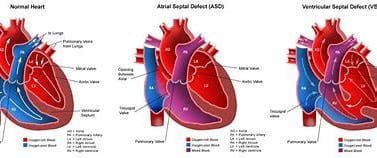Introduction

A Lifesaving Treatment That Changes Health Cardiac disease is one of the major causes of mortality in the world, leading to millions of deaths and being a heavy burden on all health care systems. Compared to the many treatments accessible, CABG or bypass surgery is an exception, this being a life-saving answer for those with severe CAD. Bypass surgery is a procedure that restores blood flow to the heart muscle, thus relieving symptoms and preventing a heart attack. In this article, we will discuss how bypass surgery works, its impact on patients’ health, and the long-term effect on quality of life.
Understanding Coronary Artery Disease and Bypass Surgery
Coronary artery disease is an illness that arises with the narrowing or blocking of the coronary arteries by the accumulation of plaque. The presence of the condition hinders the passage of oxygen- and nutrient-rich blood to some parts of the heart, leading to pain in the chest wall, breathlessness, and even a heart attack. Some life habits contribute to CAD, including nutrition, smoking, a low level of exercise, as well as genetics. If the measures mentioned above do not improve the condition of the patient, bypass surgery is usually opted for if the blockages are very severe.
Bypass surgery is a procedure that uses a healthy blood vessel taken from another part of the body, usually the leg, arm, or chest. The surgeon grafts it onto the blocked coronary artery, creating a detour or “bypass,” where blood flows freely around the blockage. In most instances, several arteries are bypassed in one surgery, and this greatly improves blood flow and enhances heart function.
Health Benefits of Bypass Surgery
Symptoms Alleviation: Bypass surgery is highly effective for severe chest pain, known as angina. Reopening blood flow to the heart either alleviates or removes discomfort experienced with angina so that patients can resume normal activity without the fear of being pained or getting fatigued.
It has reduced the risk of heart attack by diverting blood flow around blocked arteries. This is especially true for high-risk patients. It is also recommended for patients with multiple blocked arteries because it can address several problematic areas in one operation.
Improved Quality of Life: Through better blood circulation, patients generally observe a better quality of life after the surgery. Quite a number of them now have more energy, enjoy greater physical endurance, and even see an improvement in their mental comfort due to reduced health concerns.
Extended Lifespan: Bypass surgery has the effect of prolonging life in some patients, including those with diabetes or far-advanced CAD, in that it eliminates the immediate risk of fatal cardiac events. Bypass surgery often yields superior long-term survival compared to other interventions, such as angioplasty, in complicated cases.
Potential Psychological and Emotional Benefits: The psychological burden of heart disease is paralyzing in itself. Most patients feel less anxious after the bypass surgery because they do not again fear the looming specter of a heart attack. Some face psychologic challenges after surgery, such as anxiety or depression, which often begin to improve over time and also with appropriate support.
Dangers and Risks Accompanying the Bypass Surgery

The procedure of bypass surgery is fairly safe while being major with inherent risk factors. Infection happens to be some of those risks: through the infection at the wound site as well as the chest cavity since it has risks as long as hygiene measures in place reduce the risks the patient exposes himself or herself due to weaknesses in their immunological health.
Stroke: This is a rare possibility, which may occur during surgery from blood clots or alterations in blood flow. The risk of stroke is greater in older adults.
Cognitive Changes: Memory lapses or cognitive impairment have been reported by some patients after bypass surgery, commonly known as “pump head.” These symptoms tend to be temporary and recover within months.
Kidney Problems: Pre-existing kidney condition patients may suffer from further complications, and surgery might even cause acute renal failure; such risks are managed by constant monitoring and adjusting anesthetics and drugs.
Because bypass surgery is a serious procedure, patients are encouraged to make lifestyle changes that ensure the long-term benefits of the surgery. This includes diet, regular exercise, quitting smoking, and stress management.
Long-term Health Effects of Bypass Surgery
Recovery and Rehabilitation. Most patients require 6 to 12 weeks of recovery after bypass surgery. Cardiac rehabilitation programs that include training in exercise, nutritional counseling, and education about heart health are strongly encouraged to assist with recovery and prevent subsequent heart problems.
After bypass surgery, they should be on several drugs with the aim of not developing clots, maintaining their cholesterol levels in the normal range, and not having elevated blood pressure. They should be followed up from time to time by their respective health care professionals.
Lifestyle Modifications. Patients who take lifestyle modification as a strategy do better for the long term. They maintain a good diet and have a diet comprising plenty of vegetables, grains, and low-saturated-fat intake of proteins, which slows further progression of plaque deposits in arteries. Exercise may also involve walking or cycling for maintaining a healthy heart that makes one’s cardiovascular sound too.
Psychological Influence: The psychological impact is varied for different patients who have undergone bypass surgery. Patients are able to feel an immense sense of relief and motivation towards better health habits, though a few experience depression or anxiety subsequent to the surgery, mostly within the first months after the surgery. Counseling and support groups get them back on track.
Conclusion: A Healthy Future for Your Heart

Bypass surgery brings life again to a patient, especially if a person has enormous coronary artery disease, helping that person relieve the condition’s symptoms, thereby making that person avoid major deadly heart conditions. It may not even heal the heart situation, but, at least during its period, it may make the patients really in full control of their health aspects. But then, certain lifestyle adjustments and consultations with a physician are a must should they really desire to see those benefits alive.
To anyone who might take up bypass surgery, being well informed about the surgical procedure, its benefits, and its risks will help make these decisions easier. The surgery itself is lifesaving, but responsibility to carry on with a healthy heart afterwards rests in the hands of the patient, who, keeping good habits, can look ahead to a healthier and much happier life.



